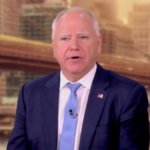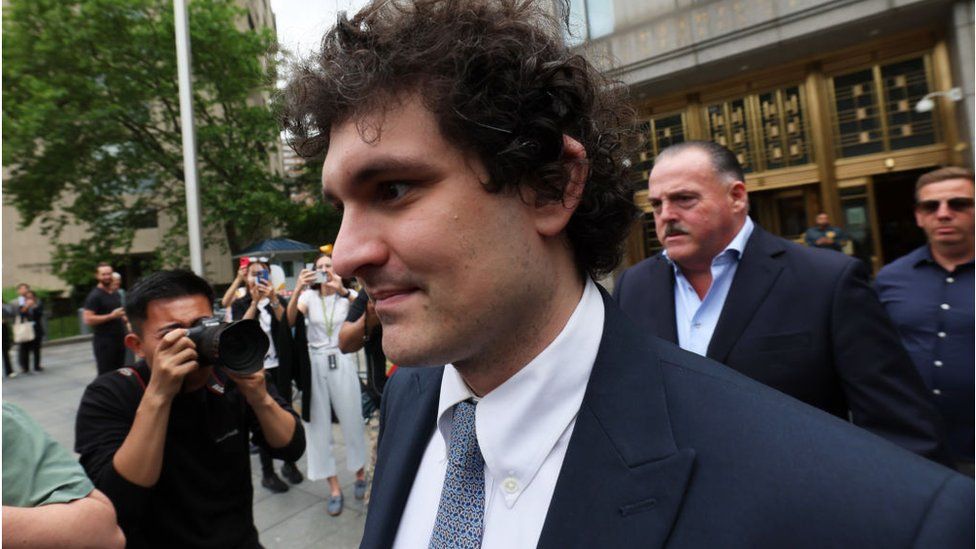BBC News world-us_and_canada
Image caption,
The jury in the fraud trial of Sam Bankman-Fried has been sent home after the former crypto boss briefly took the stand but did not speak.
The former entrepreneur was instead asked to testify in private before the judge to determine what parts of his testimony are admissible.
The 31-year-old is accused of lying to investors and lenders and stealing money from customers of his now-bankrupt cryptocurrency exchange, FTX.
Mr Bankman-Fried denies the charges.
His appearance at the New York court follows 12 days of prosecution testimony in which close former colleagues gave evidence.
Mr Bankman-Fried had been widely tipped to speak in his own defence on Thursday after his lawyers began presenting his case.
If he is found guilty he could face a life sentence in prison.
Defendants in the US are not obliged to testify during trials – and are often advised against doing so, since it opens them up to questioning by prosecutors.
It also gives members of the jury that will decide the case a chance to form their own impressions, which might not be favourable.
“If the jury does not believe him, it’s a guaranteed conviction,” Jacob Frenkel, a former federal prosecutor who has been following the trial told the BBC earlier this month.
Despite the risks, many analysts following the trial predicted Mr Bankman-Fried would take the stand to offer his own version of events and try to undermine the story presented by prosecutors.
“The prosecutors have put on a pretty strong case,” said Carl Tobias, law professor at the University of Richmond. “I don’t know that there’s much downside in this case for him to testify given what we’ve seen so far.”
Prosecutors have built their case on statements from three of his closest former friends and colleagues, who have already pleaded guilty.
They have tied Mr Bankman-Fried to decisions to take money deposited at FTX and use it to repay lenders at his crypto trading firm, Alameda Research, buy property, and make investments and political donations.
They say he tried to hide the transfers between the two firms and their close relationship – and lawyers have buttressed their allegations with text messages, spreadsheets and tweets.
During the trial, these witnesses, who include his ex-girlfriend and former Alameda chief executive Caroline Ellison, have emerged from hours of questioning with their credibility seemingly largely unscathed.
Mr Bankman-Fried’s defence team has argued he was following “reasonable” business practices, as his companies grew rapidly.
After the collapse of his companies last year, he admitted in media interviews, including to the BBC, to managerial mistakes but said he never intended fraud.
Elizabeth Holmes is among other high-profile examples of defendants who have opted to testify in their own defence.
The founder of blood-testing start-up Theranos, who argued that she did not intend to defraud investors, was ultimately convicted of four out of 11 counts and sentenced to more than 11 years in prison.
But testifying can also pay off. Tom Barrack, a former private equity executive and fundraiser for former President Donald Trump, and Lebanese businessman Jean Boustani, both took to the stand in separate, unrelated criminal cases and were acquitted.
Related Topics
Author Profile
Latest entries
 HeadlinesOctober 22, 2024Bucs star Chris Godwin suffers gruesome ankle injury broadcast won't show in loss to Ravens
HeadlinesOctober 22, 2024Bucs star Chris Godwin suffers gruesome ankle injury broadcast won't show in loss to Ravens ScienceOctober 22, 20241 AirBnB tweak could help slow rising home prices
ScienceOctober 22, 20241 AirBnB tweak could help slow rising home prices HeadlinesOctober 22, 2024Tim Walz pressed on 'The View' about past misstatements: 'I speak honestly'
HeadlinesOctober 22, 2024Tim Walz pressed on 'The View' about past misstatements: 'I speak honestly' ScienceOctober 21, 2024What’s behind the rise in ADHD diagnoses?
ScienceOctober 21, 2024What’s behind the rise in ADHD diagnoses?

